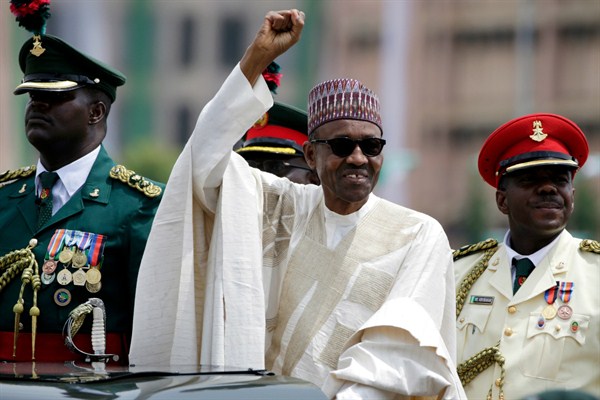Editor’s note: This article is part of an ongoing WPR series on the impact of falling oil and commodities prices on resource-exporting countries.
Last week, Nigeria’s Senate passed President Muhammadu Buhari’s proposed 2016 budget, which projected a deficit of $15 billion due to falling oil prices. In an email interview, Matthew Page, an international affairs fellow at the Council on Foreign Relations, discussed the impact of falling oil prices on Nigeria’s economy and politics.
WPR: How realistic is President Buhari’s latest proposed budget, and what are the implications of the budget’s $15 billion deficit?

